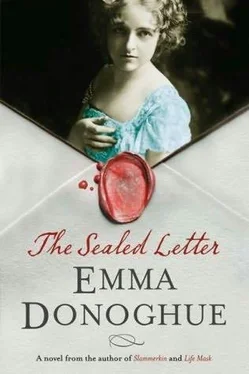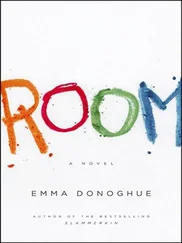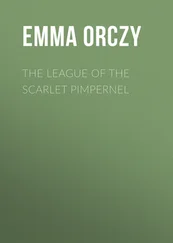Helen snorts. "I've run charity bazaars with women I'd happily see dead at my feet. But carina," she laughs, resting her fingertips on the brown satin of Fido's skirt, "if you haven't found one true intimate among the whole coven-that's a crying shame. You've such a genius for friendship, such an adhesive disposition-"
When I was young, thinks Fido with a stab. Perhaps it's rusted up.
"I had a sort of friend, in Malta," volunteers Helen.
"A sort of friend?"
"Quite a bit older; the wife of a local clergyman. The Watsons had a French governess for their wards, you see, and invited Nell and Nan over there to share lessons, which seemed harmless," says Helen bleakly. "We were all great mates till she began to turn Harry against me."
Fido's eyebrows shoot up. "Surely he didn't-he wasn't-"
"Oh, her attractions weren't of that kind," says Helen, "but she gained a strange ascendancy over him. Prigs are the worst of women; all that prudery hides a lust for power."
It strikes Fido that this is her chance to enquire into the state of the Codrington marriage. She wonders if the admiral is downstairs in his study. Has Harry been told she's in the house, for the first time since the day he-regretfully, impeccably-asked her to leave?
But she's hesitated too long, and Helen's rattling on again. "Well, my dear, if you really haven't one kindred spirit among this gang of black and midnight hags -then I intend to reinstate myself at once."
They're both grinning at her cheek. "There are no hags at Langham Place," Fido tells her. "Bessie Parkes, for one, is so small-boned and lovely that I feel like a bull beside her. In fact, there was a comical incident last spring when some Swedish professor called and mistook me for Miss Parkes; he described her in his travel memoir as an independent, strapping female who went outside and called a cab for herself-much to Bessie's horror!"
When Helen has stopped laughing, she remarks, "Reading about your career, in Malta-I used to wonder if you might end up marrying some earnest reformer, a lecturer on hygiene or some such. Or a vicar perhaps, like your sisters."
Fido smiles slightly. "You know, the old maid of today is not an object of pity."
"I've never pitied you for an instant."
"Independence, a home of one's own, travel…" She marks them off on her fingers. "Liberty's been a better husband to many of us than love."
"I've not a word to say against the single life," Helen protests, "I just can't quite imagine how it's done. But you'll hear no hymns to matrimony from me," she adds darkly.
There, the subject's been laid squarely on the table. Fido speaks before she can lose her nerve. "Are you… may I ask, are you and your husband any happier, these days?"
A small grimace. "Mi ritrovaiper una selva oscura, " recites Helen. "That's the only tag from Dante I can recall from all the Signora's lessons."
"You've… woken in a dark wood?" Fido translates.
"And once married folk have strayed into the dark wood, one doesn't hear that they generally find their way out."
"I'm so very sorry." Not surprised, though, she realizes; not surprised at all.
"Well at least Harry and I both behave rather better than in the era when you had to put up with scenes over the breakfast table," says Helen. "Somehow we've acquired the knack of getting through the days. The years, rather! Separate lives, separate rooms, separate friends…"
All Fido can think to say is, "I'm sure he still cares for you, in his stiff way."
"Huh! Everything you know about marriage comes out of a book."
Fido stares at her. "That's not true. I've talked to many wives. They often speak of marriage pragmatically, as an occupation with its own duties and satisfactions. Some tell me a husband can be managed quite easily, as he wants only to be treated with deference, as master in his own house."
"So I should pacify Harry, just as I'd soothe one of the girls if she had a stomachache, or nag a forgetful maid, or tot up a budget for coals and lamp oil?" Helen's tone is withering.
"It's nothing more than tact. Forbearance. A hidden power."
"You try it!" Helen rubs the back of her neck. Then, in a chastened tone, "Did living with us for all those years scare you off the whole business?"
"Oh no," Fido assures her. "I'm afraid I've simply never felt that interest in a man that the poet calls 'woman's whole existence.' Solitude suits me," she adds. Is this true? she wonders suddenly. She thinks of solitude within a marriage, like a hearth that gives off cold instead of light. "But it mustn't be thought that my views on the advancement of women mean that I've lost faith in marriage," she goes on confusedly.
"Well, that makes one of us."
"Helen!" In the silence, she scrabbles for an analogy. "One may have a single bad dinner on a Sunday, without deciding to scrap the whole institution of Sunday dinner."
"I've been choking down this particular dinner for fifteen years," says Helen under her breath.
"Marriage is still the bedrock of society," Fido tells her, almost pleadingly. "If founded on self-respect and freedom-"
"Aye, if," Helen interrupts. "There's the rub."
Fido sighs. "Well, yes, it needs reform, of course. The entire engulfing of the wife's identity in the husband's-her surrender of property-his almost unlimited rights over her person…" Does her friend even know her true position under British law, Fido wonders-classed with criminals, lunatics, and children? "And so often the wife's I do is neither truly informed nor free."
Helen is nodding eagerly.
"We of the Cause-we seek to open careers to women precisely to give them a choice," Fido explains, "so they won't be driven by monetary need into loveless marriage, as some sort of life raft."
"I thought I was choosing. I thought I loved him," says Helen in a shaking voice. "These December-May matches…"
"Hardly December. I see you're still absurdly prone to exaggeration," says Fido, trying to lighten the moment.
"Well, late October, at least. Harry was forty-one, and I barely twenty-one; he might have been my father! A handsome giant in blue and white, with gold lace cuffs," she says wistfully, "posted to shield us Anglo-Florentines from the rebel mob. And I, little Miss Helen Smith, a wide-eyed Desdemona, enchanted by his tales of adventure on the high seas."
Fido frowns. Helen as Shakespeare's heroine, perhaps, but anyone less like the jealous Moor than the sober, thoroughly English Harry Codrington…" My dear, haven't the years done anything to soften you two to each other?"
"Oh, you innocent," says Helen. "That's not what years do."
***
The early September morning's still cool. Fido stands in the shower-bath and pulls the lever decisively. The numbing deluge makes her hiss. Afterwards she rubs herself all over with the towel, coughing. So many of her sex spend a week in bed at the least sign of weakness, but in Fido's view, the body's tremendous engine must be kept running.
Outside, the distinctive clink-clink of the milkwoman's iron-shod boots. She'll be shifting her laden yoke on her shoulders, filling up a half-quart for Miss Faithfull and lowering it on a hook over the railings.
Fido's still brooding over the conversation at Eccleston Square two days ago. She made a hash of explaining her work, or rather, its contagious excitement. In an age when the system (that hackneyed phrase) is generally said to determine everything, when all social ills are nobody's fault, the women of the Reform Firm-with the men of the Social Science Association and a few other forward-thinking organizations-say, not so! Fido's seen change coming in a single generation; the icy chains of prejudice shaking loose. She toils hard and with pleasure, so that other women may be freed from their set grooves (whether of poverty or boredom, dependence or idleness), freed to toil hard and with pleasure in their turn. This is what gets Fido out of bed by six every morning. So why does she feel she left Helen with the impression that she sits around squabbling with other do-gooders?
Читать дальше












